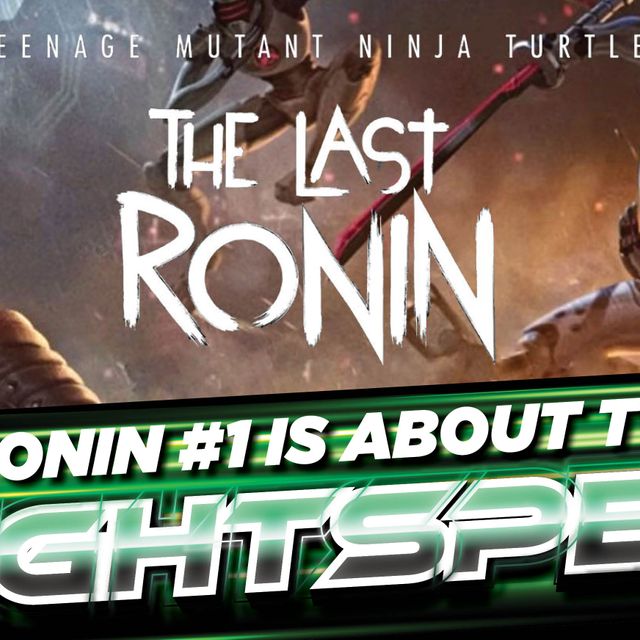
When a common level villain first encounters the hero in Batman (1989) he asks "What are you?" Without hesitation, he says "I'm Batman". Batman knew what he was but do you know what you are?
The following are my lists of the different types of comic book hobbyists. There may be some areas where descriptive traits overlap, but usually, hobbyists fit in one of these classifications. There is nothing negative directed to these different sellers/buyers. Knowing what you are and the type of person you are going against can assist you in making a better purchase or avoiding a bad one.
The Different Types of Comic Comic Book Buyers/Sellers


1. The Speculator
This person wants to get the best deal by being the first hobbyist in on a comic. At your local store, Speculators buy variant editions without seeing the covers before purchase. Speculators also see nuggets of information in interviews with studio personnel or in trailers and make leaps of faith in their purchases. We all remember how Amazing Spider-man #212 rocketed up on GoCollect's hot lists because of a water-based character appearing in a trailer with no confirmed plot details. The Speculator went in on this book and caused marketplace FOMO. The Speculator is usually the first out of the book as well so sudden downward trends can also be a sign of what they are thinking.
Think of them as the comic book market's version of gamblers. They have the lowest affection for the books they purchase because they are always looking for the next great thing. They hate bidding wars at auctions because it cuts into their profits. They take the biggest risks but also can receive the biggest rewards. Studying GoCollect data can show anomalies that reveal their plans. This usually appears in both the sudden number of sales and increases in the CGC census.


2. The Investor
An Investor sees the world almost in the same vein as the speculator but they are more data-driven. Strange Tales #169 was not on anyone's radar until a character appeared in the MCU that was related to Brother Voodoo. Investors had enough information to buy this book. Investors price the risk into their purchases and always are afraid to lose money. Investors also see the long and short term views of the hobby. Avengers #4 is not usually the target of a Speculator, but Investors may see this book as a long term "blue chip" stock that should only appreciate in value over time.
The Investor will buy books with the intent to keep them either short term or long term, but always with the goal to turn a profit. The Investor has a little more appreciation for their books than the Speculator and will hold on to them if the price is right. Their long and short term views of books makes them the accountants of the marketplace. Most successful comic book shops fit in this category. In the field, Investors are your GoCollect savants who have memorized all the data backward and forwards.


3. The Collector
Many people entered the hobby as Collectors and did not even know it. Maybe the Collector loves Dr. Doom, so his appearance in Daredevil #37 is of value to them when not on the radar of others. Historical importance may also be a category and thus a costly book such as Crime Suspenstories #22 may be a target of a Collector who wants this book only because it was a focus on the Senates Subcommittee on Juvenile Delinquency. Graded Condition, Genre, Heroes, Artists, Variants, and other interests all may influence the Collector. At auctions, you will see a Collector bidding or selling the same type of stuff throughout an auction.
A Collector who wants a book for his collection ignores prices. Collectors have knowledge so do not let their ignoring of FMV be viewed as ignorance. Collectors are more concerned with census than anything else when it comes to getting a book. Everyone wants a deal, but if a book is rare and a missing part of their collection, then the Collector will pay a premium for books in FOMO in not OWNING the book. Be wary of going against them when buying if profit is your goal. While all may have this attribute in the hobby, Collectors can be considered the true hoarders of the market. When large groups of books that appear related enter into the market you know a Collector is involved. This is much more readily observable in the Golden Age market where an influx of books will suddenly appear either in the census or sales data. When buying from a Collector realize that they will want to sell their books for top dollar because sentimental factors will be factored in their sales price.


4. The Newbie
The newbie comes in two variants and is the scourge of Speculators, Investors, and Collectors alike. Variant number one of the Newbie I call "Deadpool." This is someone either new to comics or auctions. "Deadpools" are crazy wildcards. They either bid so high on something because they do not know comic grading, FMV, GoCollect data trends, or get an auction adrenaline rush and just keep bidding well after they wanted to stop. Knowledge may be power but with these "Deadpools" the power is in their wallets. Where your red shirt because profits will be spilled going against these people to buy a book.
The other variant Newbie out there is the "Thanos". "Thanos" is not new to the comic book market but they are new to either an eBay seller's auction or live auction. Normally on eBay, you can expect a certainty at a seller's auction but with a "Thanos" a new player has entered the market that creates chaos. "Thanos" is more readily identifiable at live auctions. A "Thanos" can be identified after you study their buying trends and thus will not be a threat later. By that time another "Thanos" will come to the auction and again put the room in chaos, not with a snap of his finger but by the waving of a paddle. A "Thanos" is as much as a wild card to auctions as a "Deadpool" but should be feared more because they have knowledge and that is an unknown factor that could make you misjudge them. They are a Collector, Investor, or Speculator in disguise. Handle with caution.
In Conclusion
Knowing what two kinds of hobbyists are involved in any transaction can help you in your negotiations. To help me with future articles I would appreciate knowing what type of hobbyists are out here reading GoCollect and if you have ever encountered any of the other types of collectors I described in the field. Your stories would help others in the market place and provide me with new topics to publish in the future.


